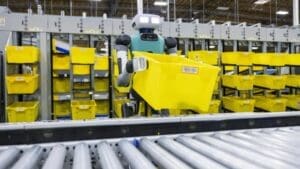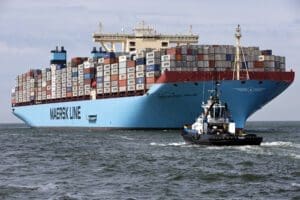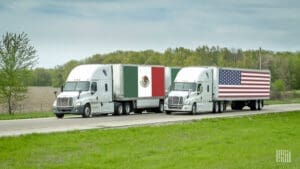 People buying tickets online for concerts, sporting events and other live events in Minnesota will be guaranteed more transparency and protection under a new bill signed into law Tuesday by Gov. Tim Walz. The law, which has been dubbed the Taylor Swift bill, was prompted by the frustration Democratic Rep. Kelly Moller felt at not being able to buy tickets to Swift’s 2023 concert in Minneapolis. The new bill will require ticket sellers to disclose all fees up front and prohibit resellers from selling more than one copy of a ticket, among other measures. The law will apply to tickets purchased in Minnesota or other states for concerts or other live events held in Minnesota. Walz signed House File 1989 — a reference to Swift’s birth year and an album with that title — at First Avenue, a popular concert venue in downtown Minneapolis. Supporters of Minnesota’s new law say the state joins Maryland as among the few states to pass protections for ticket buyers into law. Neither Ticketmaster nor Taylor Swift’s media team have responded to requests for comment. And now on to this week’s logistics news.
People buying tickets online for concerts, sporting events and other live events in Minnesota will be guaranteed more transparency and protection under a new bill signed into law Tuesday by Gov. Tim Walz. The law, which has been dubbed the Taylor Swift bill, was prompted by the frustration Democratic Rep. Kelly Moller felt at not being able to buy tickets to Swift’s 2023 concert in Minneapolis. The new bill will require ticket sellers to disclose all fees up front and prohibit resellers from selling more than one copy of a ticket, among other measures. The law will apply to tickets purchased in Minnesota or other states for concerts or other live events held in Minnesota. Walz signed House File 1989 — a reference to Swift’s birth year and an album with that title — at First Avenue, a popular concert venue in downtown Minneapolis. Supporters of Minnesota’s new law say the state joins Maryland as among the few states to pass protections for ticket buyers into law. Neither Ticketmaster nor Taylor Swift’s media team have responded to requests for comment. And now on to this week’s logistics news.
- Amazon’s warehouse robot army keeps getting bigger and bigger
- Walmart’s commitment to modernizing its supply chain
- Maersk says expanded Houthi attacks are forcing more delays
- US-Mexico trade tops $200B in first quarter of 2024
- New shipping routes highlight growing Asia-to-Mexico trade
- Hyundai delivers fuel cell trucks to NorCAL ZERO Project
- Kohl’s picks Instacart as exclusive same-day delivery partner
 Amazon has ramped up its fleet of robots in recent years to boost its warehouse operations. It’s more than doubled the number of robots deployed in its fulfillment centers and warehouses in the last three years, from 350,000 in 2021 to 750,000 by last June. The company has a variety of robots that serve different functions within the warehouse. Robotic arms Robin and Sparrow were designed and manufactured at its Robotics Innovation Hub near Boston and help sort customer orders. Proteus and Hercules move and look like the robot vacuum Roomba and shift items such as containers. Its robotic system called Sequoia lifts and sorts containers and eases the strain on employees to bend and stretch. The company also started testing Agility Robotics’ humanoid robot called Digit in warehouses last year.
Amazon has ramped up its fleet of robots in recent years to boost its warehouse operations. It’s more than doubled the number of robots deployed in its fulfillment centers and warehouses in the last three years, from 350,000 in 2021 to 750,000 by last June. The company has a variety of robots that serve different functions within the warehouse. Robotic arms Robin and Sparrow were designed and manufactured at its Robotics Innovation Hub near Boston and help sort customer orders. Proteus and Hercules move and look like the robot vacuum Roomba and shift items such as containers. Its robotic system called Sequoia lifts and sorts containers and eases the strain on employees to bend and stretch. The company also started testing Agility Robotics’ humanoid robot called Digit in warehouses last year.
Walmart recently established its latest high-tech consolidation center in Illinois, marking a significant addition to its supply chain infrastructure. The 492,000 square-foot facility is expected to create almost 700 jobs and will utilize automated technology to handle three times more volume, enhancing efficiency and ensuring the right products reach stores when demand arises. Walmart’s consolidation centers are crucial when it comes to moving products quickly along their journey to store shelves and to customers. Each has the capacity to receive general merchandise items from suppliers in smaller freight loads, known in the industry as less-than-truckload (LTL), and consolidate them into larger freight loads known as truckloads (TL).
 Global shipping lines have become increasingly strained as the Houthi militia in Yemen broadens its attacks on cargo vessels, one of the largest companies in the industry warned on Monday. “The risk zone has expanded,” Maersk, the second-largest ocean carrier, said in a note to customers, adding that the stress was causing further delays and higher costs. Since late last year, the Houthis have been attacking ships in the Red Sea, which cargo vessels from Asia have to travel through to reach the Suez Canal. This has forced ocean carriers to avoid the sea and take a much longer route to Europe around the southern tip of Africa. But in recent weeks, the Houthis have been trying to strike ships making that longer journey in the Indian Ocean. Because going around Africa takes longer, shipping companies have had to add more vessels to ensure that they can transport goods on time and without cutting volumes.
Global shipping lines have become increasingly strained as the Houthi militia in Yemen broadens its attacks on cargo vessels, one of the largest companies in the industry warned on Monday. “The risk zone has expanded,” Maersk, the second-largest ocean carrier, said in a note to customers, adding that the stress was causing further delays and higher costs. Since late last year, the Houthis have been attacking ships in the Red Sea, which cargo vessels from Asia have to travel through to reach the Suez Canal. This has forced ocean carriers to avoid the sea and take a much longer route to Europe around the southern tip of Africa. But in recent weeks, the Houthis have been trying to strike ships making that longer journey in the Indian Ocean. Because going around Africa takes longer, shipping companies have had to add more vessels to ensure that they can transport goods on time and without cutting volumes.
 Mexico was the United States’ top trading partner in March, with two-way trade totaling $68.5 billion, according to the latest data from the Census Bureau. It was the third consecutive month and 13th of the past 14 months Mexico has been No. 1 in trade with the U.S. While Mexico retained the top spot in March, year-over-year trade with the U.S. declined 5% in the month compared to the same period in 2023. Canada was the second-ranked U.S. trade partner in March at $65.1 billion, followed by China at No. 3 with $42.7 billion. In the first quarter of 2024, trade between Mexico and the U.S. totaled $200.1 billion, a 1.7% y/y increase. During March, U.S. imports from Mexico rose 3.8% y/y, while U.S. exports decreased 1.2% y/y. The U.S. trade deficit with Mexico was $39.7 billion in the month. The top five imports from Mexico to the U.S. in March were passenger vehicles ($4.2 billion), auto parts ($3.2 billion), computers ($2.8 billion), commercial vehicles ($2.7 billion) and insulated wires/cables ($1.4 billion), according to Census Bureau data analyzed by WorldCity.
Mexico was the United States’ top trading partner in March, with two-way trade totaling $68.5 billion, according to the latest data from the Census Bureau. It was the third consecutive month and 13th of the past 14 months Mexico has been No. 1 in trade with the U.S. While Mexico retained the top spot in March, year-over-year trade with the U.S. declined 5% in the month compared to the same period in 2023. Canada was the second-ranked U.S. trade partner in March at $65.1 billion, followed by China at No. 3 with $42.7 billion. In the first quarter of 2024, trade between Mexico and the U.S. totaled $200.1 billion, a 1.7% y/y increase. During March, U.S. imports from Mexico rose 3.8% y/y, while U.S. exports decreased 1.2% y/y. The U.S. trade deficit with Mexico was $39.7 billion in the month. The top five imports from Mexico to the U.S. in March were passenger vehicles ($4.2 billion), auto parts ($3.2 billion), computers ($2.8 billion), commercial vehicles ($2.7 billion) and insulated wires/cables ($1.4 billion), according to Census Bureau data analyzed by WorldCity.
A new sea route from Cosco Shipping Lines became operational on Monday, as several global ocean carriers have initiated services targeting Asia-to-Mexico trade. In addition to Cosco, global ocean carriers Mediterranean Shipping Co. and CMA CGM have launched services to tap into soaring container volumes and growing investment in Mexico by Chinese companies. Cosco Shipping Lines and its subsidiary OOCL’s new Transpacific Latin Pacific 5 (TLP5) line offer direct connections between China, South Korea, Japan and Mexico. TLP5 offers transit times of 15 and 20 days from Qingdao, China, to the ports of Ensenada and Manzanillo, Mexico, respectively. The service will utilize eight ships of 4,000 to 6,000 twenty-foot equivalent units. TLP5 launched with the 5,668-TEU vessel Xin Da Lian from Ningbo, China.
Hyundai delivered 30 of its fuel cell trucks to Northern California. The 30 Hyundai XCIENT Class 8 hydrogen fuel cell electric trucks will hit the road as part of the NorCAL ZERO Project to push for emission-free freight transportation. Glovis America will operate the trucks around the Port of Oakland. FirstElement Fuel set up a hydrogen filling station in Oakland, where the trucks will be refueled. The station can support up to 200 H2 trucks per day by design. The fuel comes from project partner Air Liquide. The project is also known as “Zero-Emission Regional Truck Operations with Fuel Cell Electric Trucks.” It is led by the Center for Transportation and the Environment (CTE) and kicked off in August 2021. It is funded with $29 million by the California Air Resources Board (CARB) and The California Energy Commission (CEC) to purchase the above-mentioned hydrogen-powered trucks, infrastructure and maintenance facilities.
And finally, Kohl’s has become the latest retailer to enable same-day delivery via Instacart, allowing customers to have accessories, home goods, skincare and beauty items delivered in as fast as one hour from all 1,172 Kohl’s stores. Shoppers using the Kohl’s Instacart storefront can earn Kohl’s Rewards on these orders, which are priced the same for delivery and in-store purchase.
That’s all for this week. Enjoy the weekend and the song of the week, Anti-Hero by Taylor Swift.
















